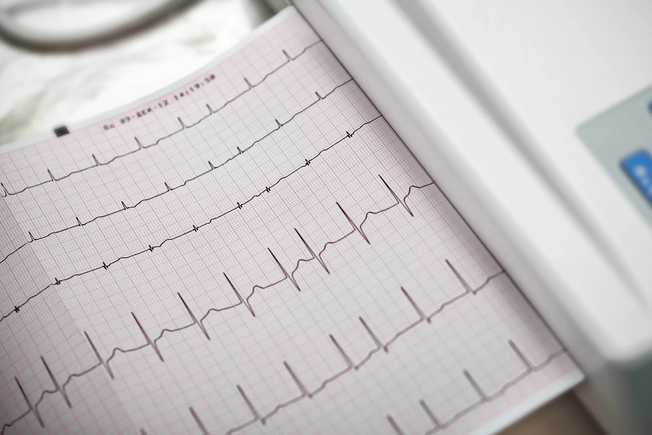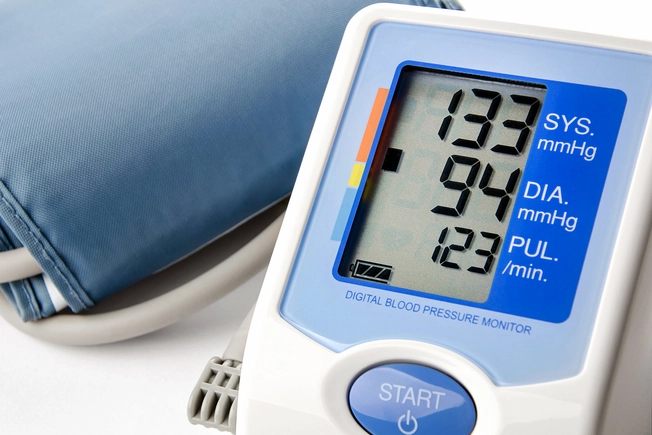AFib and Anxiety: Management Tips and Knowing the Difference

Similar Symptoms
Anxiety causes constant worry and fear, sometimes to the point of panic. When you’re having anxiety, one common symptom is a racing heart. You may wonder whether it’s anxiety or your atrial fibrillation (AFib) and if the two are related.

Anxiety and AFib May Be Linked
Some research shows having anxiety doesn’t raise your risk for AFib. But other studies show anxiety can trigger AFib episodes. Although results are mixed about a direct link, there does seem to be a connection between the two.

High Blood Pressure, Anxiety, and AFib
Studies that look at anxiety and high blood pressure show that although anxiety may not cause high blood pressure, it’s common to have both at the same time. High blood pressure over time can increase your chances of an AFib episode.

Anxiety More Common With AFib
A study on older adults showed that both depression and anxiety were more common in those with AFib. For those who had both, their AFib symptoms were worse compared to people with AFib who only had one or neither of these other conditions.

When to See a Doctor
Although both anxiety attacks and AFib episodes can often pass on their own without intervention, get checked out if your heart palpitations last a long time or you have chest pain, breathing issues, dizziness, or confusion along with them.

The Role of Stress
Some studies show stress can bring on AFib. Often, stress and anxiety feel similar, but stress typically comes from an external trigger, whereas anxiety doesn’t have to. Lowering stress can help both AFib and anxiety.

Tip: Practice Yoga
Research says yoga is a clear way to lower stress and anxiety. Although it’s not a treatment for AFib, this gentle practice of holding poses and focusing on breathing helps regulate your sympathetic – “fight or flight” – nervous system so you better avoid AFib triggers.

Tip: Meditate
Mind-body practices such as meditation and mindfulness that focus on physical sensations and being in the moment not only help decrease the impact of stress on your body, but they can also help keep AFib symptoms at bay.

Tip: Get Regular Exercise
It’s not just OK, it’s healthy to get exercise when you have AFib. Studies show people who do regular moderate-to-intense exercise reduce the number of AFib episodes they have compared to those who don’t exercise. Anxiety goes down with aerobic exercise, too – especially if you do it outside in nature. If you don’t already exercise, check with your doctor before you start a new routine.

Tip: Try Therapy
Psychotherapy, specifically cognitive behavioral therapy (CBT), is a research-backed way to manage symptoms of anxiety. With a professional, you can learn strategies that help you navigate and even prevent these symptoms that could contribute to episodes of AFib.
Show Sources
IMAGES PROVIDED BY:
1) Ariel Skelley / Getty Images
2) sudok1 / Getty Images
3) zencreation / Getty Images
4) Natalia Gdovskaia / Getty Images
5) sturti / Getty Images
6) Hinterhaus Productions / Getty Images
7) Bruce Laurance / Getty Images
8) skynesher / Getty Images
9) FG Trade / Getty Images
10) RichLegg / Getty Images
SOURCES:
Mayo Clinic: “Anxiety Disorders,” “Atrial fibrillation and managing stress.”
Medicine: “Relationship between psychological factors and atrial fibrillation.”
Cardiology Research and Practice: “Triggers for Atrial Fibrillation: The Role of Anxiety.”
Current Hypertension Reports: “Anxiety and Hypertension: Is There a Link? A Literature Review of the Comorbidity Relationship Between Anxiety and Hypertension.”
Hypertension: “Atrial Fibrillation and Hypertension.”
Archives of Gerontology and Geriatrics: “Psychosocial and cognitive multimorbidity and health-related quality of life and symptom burden in older adults with atrial fibrillation: The systematic assessment of geriatric elements in atrial fibrillation (SAGE-AF) cohort study.”
Wilson N. Jones Regional Medical Center: “Anxiety Or Arrhythmia? Going To The Hospital For Chest Pain.”
Journal of Psychiatric Research: “A systematic review of randomised control trials on the effects of yoga on stress measures and mood.”
Journal of Arrhythmia: “The impact of yoga on atrial fibrillation: A review of The Yoga My Heart Study.”
Heart Rhythm O2: “A SMART approach to reducing paroxysmal atrial fibrillation symptoms: Results from a pilot randomized controlled trial.”
CardioSmart: “How Active Can I Be With AFib?”
Harvard Health: “Can Exercise Help Treat Anxiety?”
International Journal of Environmental Research and Public Health: “Psychological Benefits of Walking through Forest Areas.”
American Psychological Association: “Beyond worry: How psychologists help with anxiety disorders.”